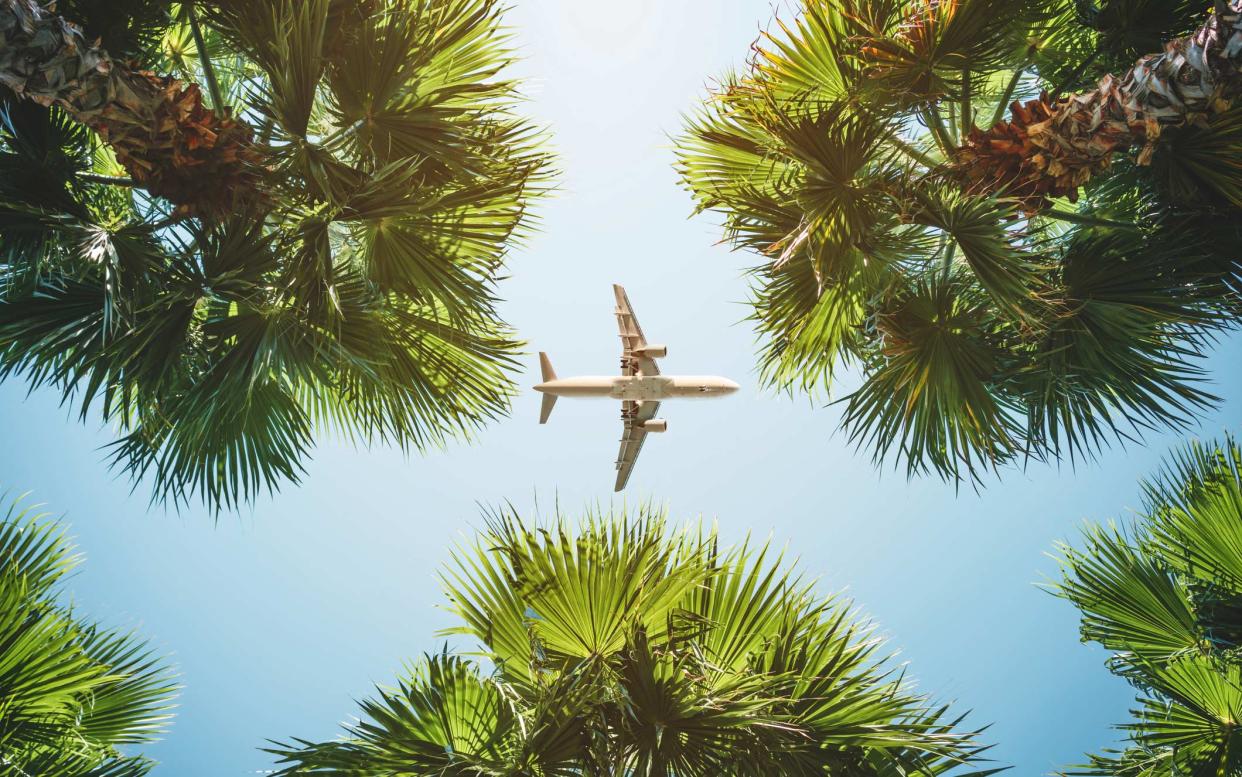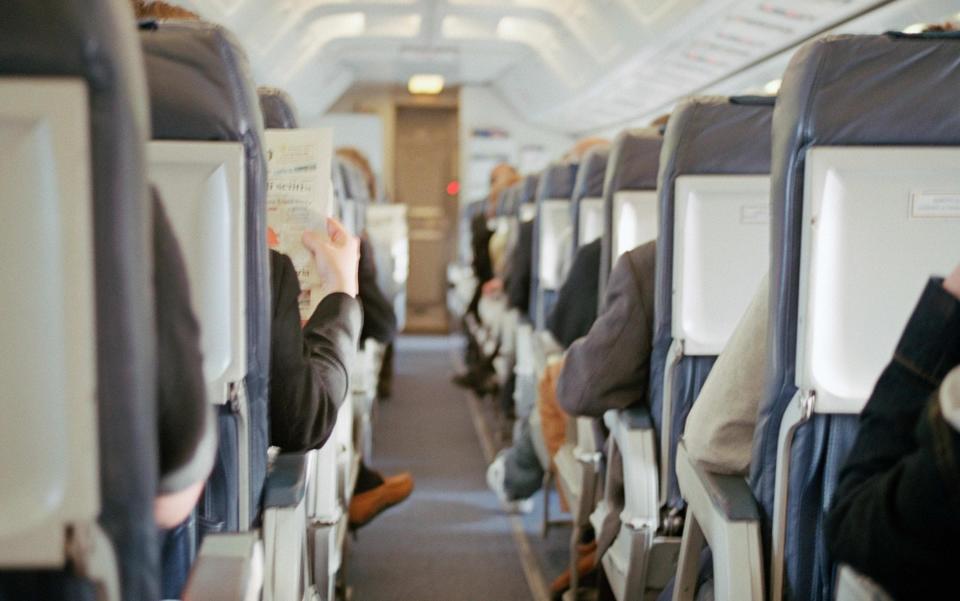When will flights resume, following the latest lockdown update?

We look at how the pandemic has affected airlines, airfares and health and safety measures
The aviation industry has never faced such a challenging time, with Iata, the International Air Travel Association, warning that revenue for 2020 will be cut in half and that many carriers face extinction. It is thought it could take years before air travel returns to its pre-pandemic levels.
Below we consider what flying will look like after coronavirus lockdowns begin to ease around the world. Will you have to wear a face mask? Will fares go up? Will you be able to sit in the middle seat?
How has coronavirus affected air travel?
Iata reckons air travel has fallen by around 80 per cent in recent weeks, with Europe hit hardest. Now and then images from flight-tracking websites show skies once jam-packed with flights now empty but for a handful of services. Heathrow has revealed its traffic for April was down 97 per cent.
Bar the occasional flight, EasyJet, Jet2 and Ryanair have grounded their entire fleets, while British Airways has slashed its schedules to just a few essential routes. The busiest staff at airline headquarters are now in customer service, as carriers work through the cancellations of tens of thousands of trips.
When will flights restart?
It seems inconceivable that significant numbers of people will start flying, even to relatively nearby European countries, before July at the earliest and even that looks optimistic. Nevertheless, EasyJet is currently intending to restart flights in June. Jet2 and Ryanair have slated July as a return to service, with the latter hoping to fly up to 40 per cent of its schedule, while IAG, British Airways' owner, has set a similar target.
See here for a full list of when airlines intend to resume flying.
Will airfares go up after the lockdown?
Previously, this newspaper reported that airfares could double in the wake of the pandemic as airlines look to stem their losses and make up for lost time.
An industry source said that should carriers need to maintain social distancing they might only be able to half-fill their aircraft, meaning the cost of seats would surge to maintain profit margins.
“Airlines may also want to recoup losses from this period where they have been largely unable to fly,” the source said. “These new inflated prices could stay high for as long as social distancing, which could last months."
Since, however, a different narrative has emerged: that airlines will need to keep prices low to encourage demand and attract back passengers. Furthermore, plans to run flights at 60 per cent capacity have been dismissed by the likes of Ryanair, and it seems health checks at airports, and face masks on flights, will become the norm - for a while, at least.
Chief executive of Australian airline Qantas, Alan Joyce, said the airline would not be leaving middle seats empty as doing so would mean the need to raise the cost of tickets nine-fold. "Social distancing on an aircraft is impractical," he said.
The CEO of budget airline Wizz Air stated last month: "Fares will be crushed. Very low fares will stimulate the market and people will travel."

But there will be a balancing act. “If social distancing becomes a flight requirement then airlines cannot make money at prevailing typical price levels on many flights,” said aviation consultant John Strickland. “Yet if they were to put up prices, they could simply stifle demand. It will be a massive challenge.”
Iata estimates that passenger numbers will be down 48 per cent for 2020 compared to 2019, despite hopes the crisis will not last a full six months. It has warned that recovery will not be V-shaped but U-shaped.
“The necessity of airlines and hotels and other travel companies to fill the coffers via price increases will compete with the need to get bums on seats,” said Nicky Kelvin, from aviation website The Points Guy. “This will require price drops to get travellers to part with their limited cash.”
Does this mean there will be deals on flights?
Possibly. It might not be enough for airlines to keep their prices low quietly, while hoping demand picks up. It depends on the state carriers are in when restrictions start to ease but there could be a huge marketing push from some companies replete with heavy discounts.
Nicky Kelvin said: “We are already seeing some great deals for flights for later in the year, and overall I think we will see a plethora of amazing deals coming to the market in the next few months.”
Jack Sheldon runs Jack’s Flight Club, a website that sources cheap flights for its paying members. He said there has already been a fall in fares for later in the year and into 2021 “as airlines are having major struggles with cash flow and are doing whatever possible to secure bookings”.
EasyJet recently launched a 99p hold luggage deal for post-pandemic travellers; baggage can normally cost up to £50 one-way. Such an offer, when ancillary charges are so important to the budget airline’s revenue, is an indication that they intend to woo travellers before hiking fares.
What if airlines collapse?
This will be the largest factor on air fares. Airlines have warned that they face huge pressure on their finances, and possible bankruptcy; should a carrier go under it will decrease capacity and competition, meaning the survivors might not be so willing to discount seats.
Sheldon said: “How prices will look post-pandemic will largely depend on what happens during it. If airlines are largely bailed out by various governments in order to survive, we expect prices to stay at current levels, as prices are primarily led by competition.
“In the last year, after the demise of Thomas Cook, we clearly saw an increase in prices on their routes - many of which were only flown by one other carrier. As an example, prices on direct routes out of Manchester to many US cities and the Caribbean moved significantly higher as Virgin Atlantic remained the sole carrier flying those routes.
“Once air travel is back to normal, it will largely depend on how many airlines are left flying. If most are, we shouldn't see an increase. If more large carriers cease operating, expect significant increases until their capacity is replaced - which unfortunately takes years."
Will holidays be cheaper?
As Nicky Kelvin said, the price of holidays will be impacted by the same factors: demand and capacity. However, with accommodation - hotels, resorts and rentals - capacity cannot be amended in the same way airlines can manage its routes - rooms will always be there, empty or not.
This makes it more likely that there will be excellents deals on accommodation for the summer and beyond, and for packages, too.
How will flying be different in the age of social distancing?
Lockdowns around the world are being lifted, but social distancing remains. It is also possible that some countries might only let in travellers who can prove they do not have coronavirus.
Emirates became the first carrier to introduce pre-flight testing for Covid-19, issuing passengers with ‘negative’ certificates before a service from Dubai to Tunisia, and the Greek prime minister has said it will open to tourists in July but only if pre-flight protocols - including testing - are in place.
The UAE carrier is also among the airlines to have made face masks mandatory in both the airport and on board (Air France, KLM and Wizz have done likewise, while the UK Government has advised that face masks be worn on public transport); it has also banned luggage from the cabin, ditching in-flight magazines and reduced meal options. If you thought air travel was a faff before, you are going to be in for a shock.
EasyJet has said it might block out the middle seats on its flights in an effort to retain social distancing when flights resume, but other carriers have pooh-poohed the idea. Though EasyJet has said it will relaunch flights in June it has not repeated its plans for the middle seat.
Are EasyJet allowed to bump passengers from the middle seats?
In essence, yes, airlines can bump travellers when flights are overbooked. But how would EasyJet decide who has to forfeit their flight? They could not do it on seat reservations as the middle seat is least likely to be pre-booked. Would it be random or would they ask for volunteers? Who knows. Of course, anyone who is moved would be offered a rebooking and possibly compensation to sweeten the deal.
Analyst OAG reckons leaving the middle seat empty is moot if there is no demand. It said: “No doubt as demand recovers there will be many empty middle seats and there will be many travellers reassured by that fact. However, enjoy it whilst you can because as demand recovers and it surely will at some point, that middle seat will once again be occupied and we will all grudgingly accept the experience; after all price has and most likely will always be king.” Besides, as Iata says, “keeping the ‘middle seat’ open will not achieve the recommended separation for social distancing to be effective. Most authorities recommend 1m-2m while the average seat width is less than 50 cm.”
Will routes be cut?
Not all flight routes are born equal, with some services known as guaranteed cash cows and others loss-leading. It is likely that as airlines resume flights the world will grow that little larger again as route networks are slashed to keep operations efficient. For example, news that Virgin Atlantic will end its presence at London Gatwick looks likely to impact flights to the Caribbean, while experts have suggested BA’s job cuts will lead to a reassessment of its route map.
Leah Ryan, managing director of Alton Aviation Consultancy, told Telegraph Travel that “the job cuts are one piece of a much larger puzzle”. She said: “I think [cutting routes] will be part and parcel of it. When you look at how airlines operate, they will need to see how and where demand comes back. Do people in the Greater Manchester area or Greater London area want to fly to Malaga three days a week when this is over? Forward bookings suggest to all the airlines around the world that the demand just isn't there yet, so is it going to impact the routes that they will offer? Most certainly, because when airlines are hemorrhaging cash they need to make decisions on where to fly and where they can make the most money.”
Inspiration for your inbox
Sign up to Telegraph Travel's weekly newsletter for the latest features, advice, competitions, exclusive deals and comment.
